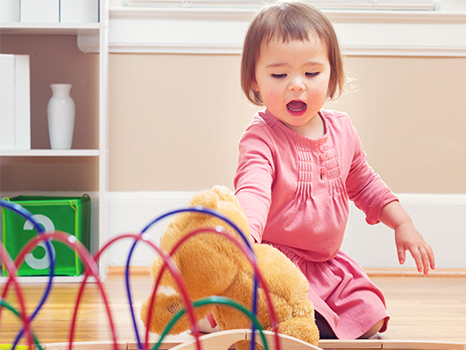Search
Showing results for "autism"

News & Events
What is SCERTS?In this blog, Senior Speech Pathologist Sally Grauaug and Speech Pathology Clinical Lead Aria May discuss the model SCERTS and how it can support your child's communication level.

Discover the stories of children whose lives have been impacted by Telethon Kids Institute research.
Research
Participation in the Wellbeing and Engagement collection in South Australian schoolsIn South Australian schools, students in Grade 4 to 12 are invited to participate in an annual survey about their wellbeing and engagement in school, referred to as the Wellbeing and Engagement Collection.
Research
Healthway Kimberly CompassionIn this project, we aim to understand how mindfulness, compassion, and related constructs are experienced by Aboriginal people in the Kimberley region of Western Australia.
Research
An Overview of Early Childhood Health and Education Service Provision in AustraliaThe impact of children’s experiences through their first 2,000 days of life – from conception to the start of full-time schooling – are widely acknowledged.
Research
Longitudinal associations between maternal and child screen use at 1 year of age and child behavior and development at 3 years of ageYoung children are increasingly exposed to evolving screen technology. International guidelines recommend no screen use for children under the age of 2 years, due to the potential for detrimental effects on behaviour and development. However, evidence for these guidelines is limited by inadequate consideration of device-specific effects (TV and mobile phone/tablet computer), maternal screen use, confounders such as maternal mental health and importance of effect sizes.
Research
International Consensus Recommendations for the Assessment and Management of Individuals With CDKL5 Deficiency DisorderCDKL5 Deficiency Disorder (CDD) is a rare, X-linked dominant condition that causes a developmental and epileptic encephalopathy (DEE). The incidence is between ~ 1:40,000 and 1:60,000 live births. Pathogenic variants in CDKL5 lead to seizures from infancy and severe neurodevelopmental delay.
Research
Identifying SETBP1 haploinsufficiency molecular pathways to improve patient diagnosis using induced pluripotent stem cells and neural disease modellingSETBP1 Haploinsufficiency Disorder (SETBD) is characterised by mild to moderate intellectual disability, speech and language impairment, mild motor developmental delay, behavioural issues, hypotonia, mild facial dysmorphisms, and vision impairment. Despite a clear link between SETBP1 mutations and neurodevelopmental disorders the precise role of SETBP1 in neural development remains elusive.
Research
A Review of Self-Compassion as an Active Ingredient in the Prevention and Treatment of Anxiety and Depression in Young PeoplePrevious meta-analyses have found higher self-compassion is associated with lower anxiety and depression. The aim of this study was to investigate the efficacy of self-compassion as an active ingredient in the treatment and prevention of anxiety and depression in youth. This was conducted through (i) a systematic review of the literature and (ii) qualitative consultation with young people and researchers in self-compassion.
Research
Inequalities in child development at school entry: A repeated cross-sectional analysis of the Australian Early Development Census 2009-2018Australia is the only developed country to consistently undertake a developmental census of its children nationwide. The repeated collection of the Australian Early Development Census (AEDC) has provided an unprecedented opportunity to examine the prevalence of developmental vulnerability across Australia's states and territories, the socio-economic distribution of developmental vulnerability across jurisdictions, and how these distributions might have changed over time.
